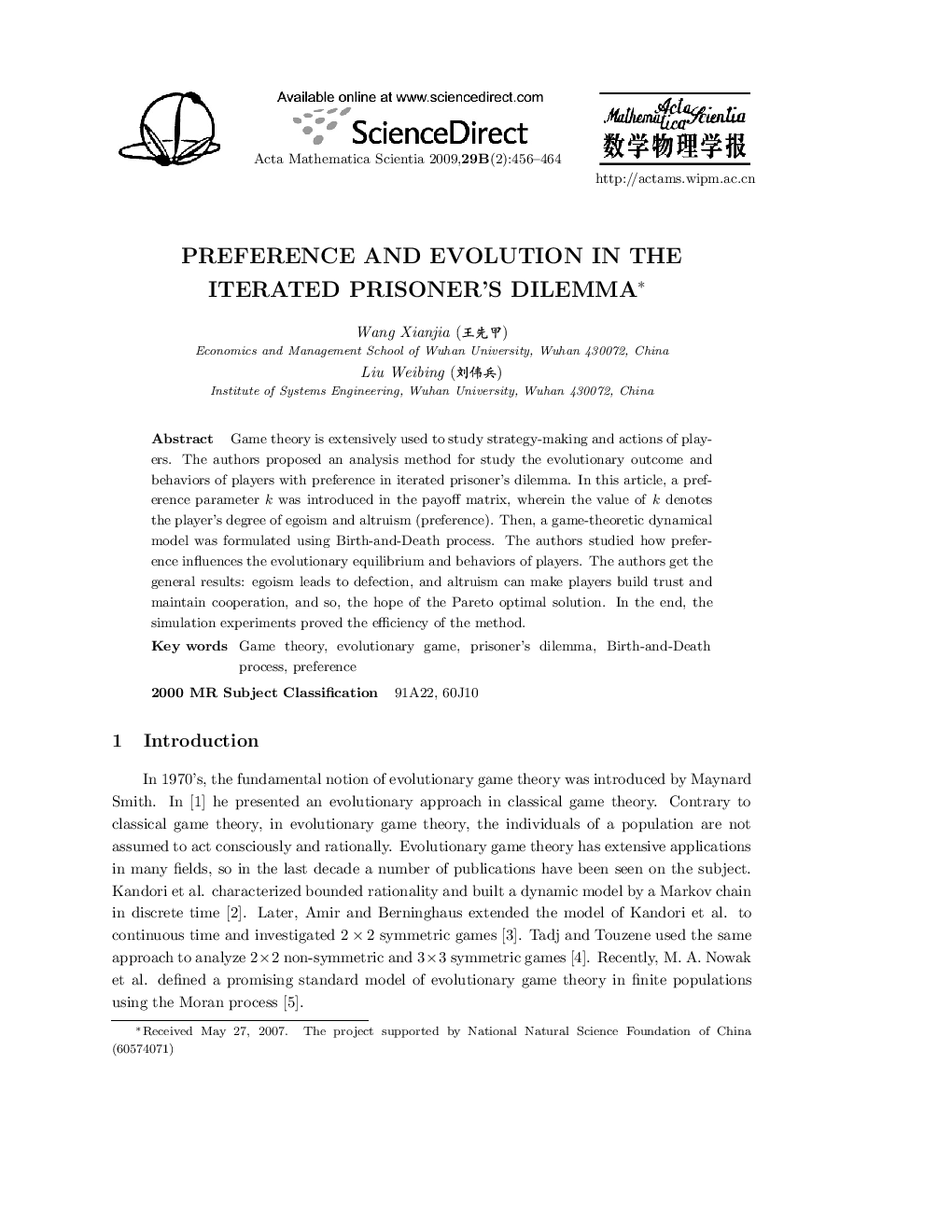| Article ID | Journal | Published Year | Pages | File Type |
|---|---|---|---|---|
| 4664708 | Acta Mathematica Scientia | 2009 | 9 Pages |
Game theory is extensively used to study strategy-making and actions of players. The authors proposed an analysis method for study the evolutionary outcome and behaviors of players with preference in iterated prisoner's dilemma. In this article, a preference parameter k was introduced in the payoff matrix, wherein the value of k denotes the player's degree of egoism and altruism (preference). Then, a game-theoretic dynamical model was formulated using Birth-and-Death process. The authors studied how preference influences the evolutionary equilibrium and behaviors of players. The authors get the general results: egoism leads to defection, and altruism can make players build trust and maintain cooperation, and so, the hope of the Pareto optimal solution. In the end, the simulation experiments proved the efficiency of the method.
